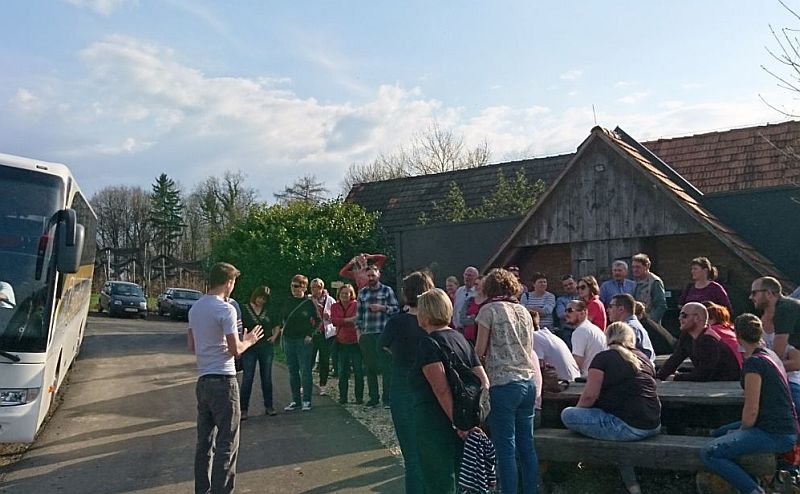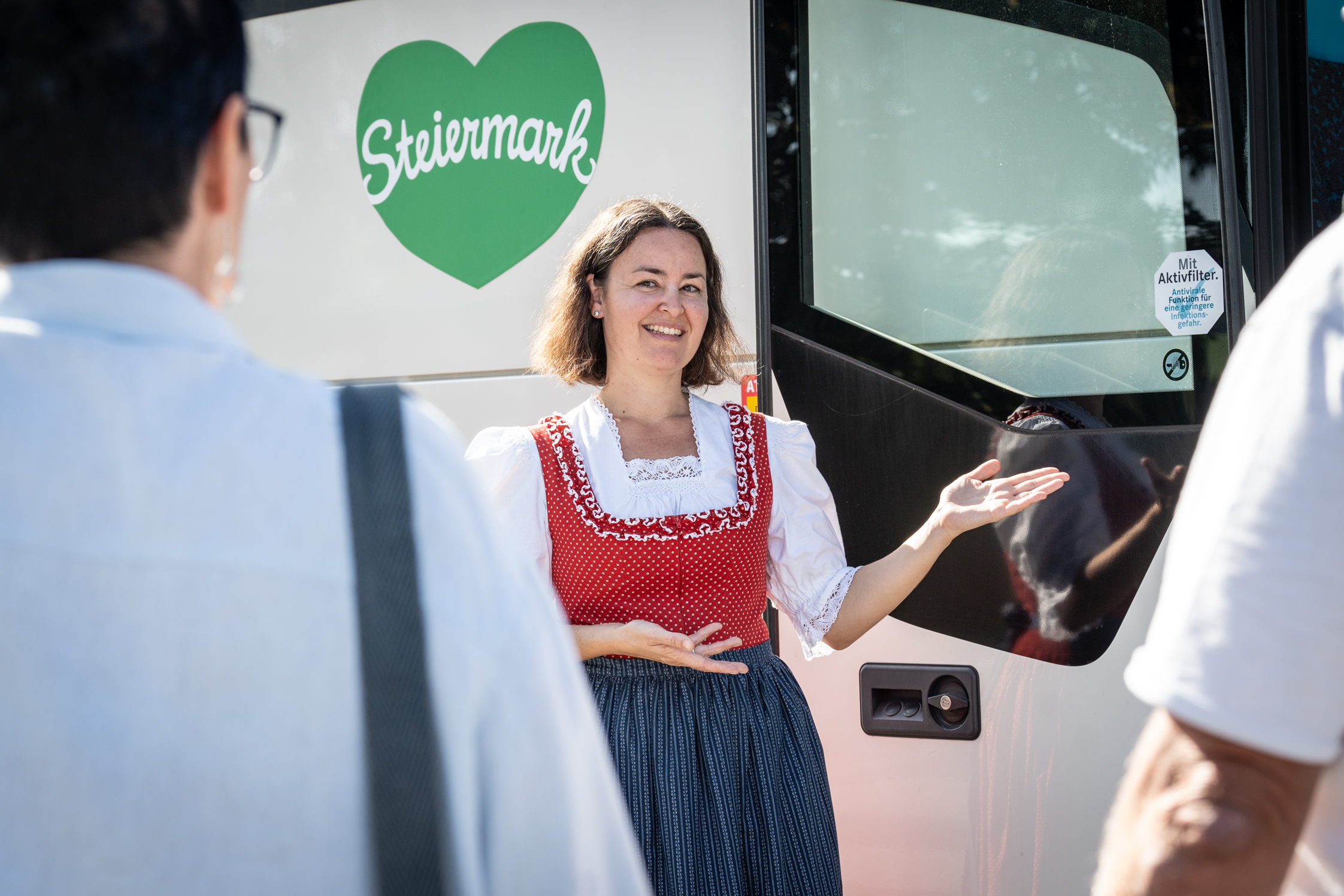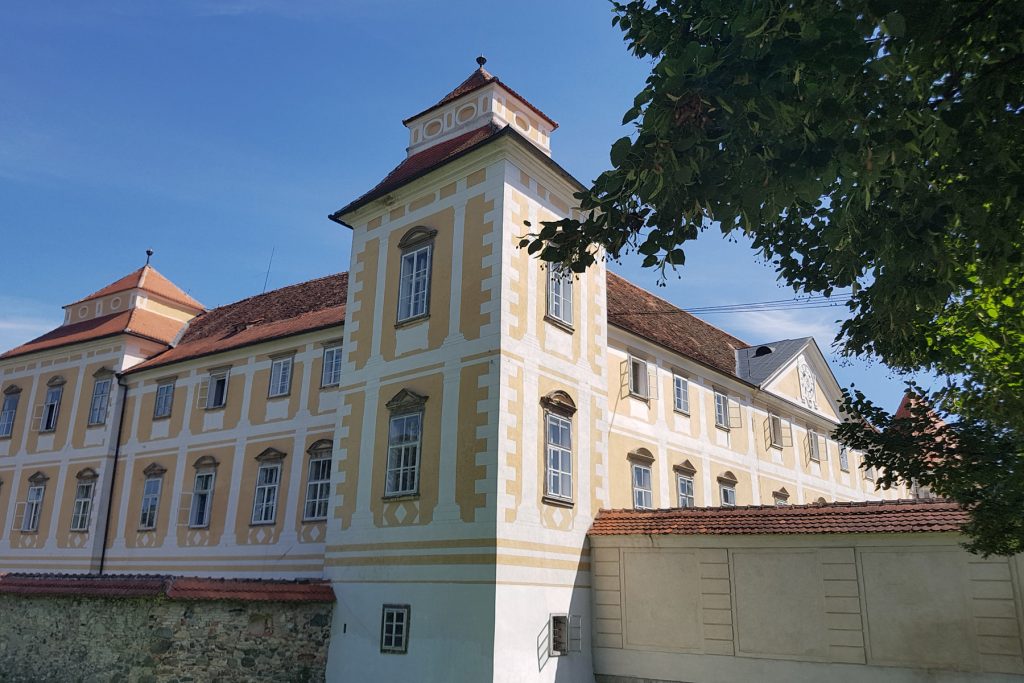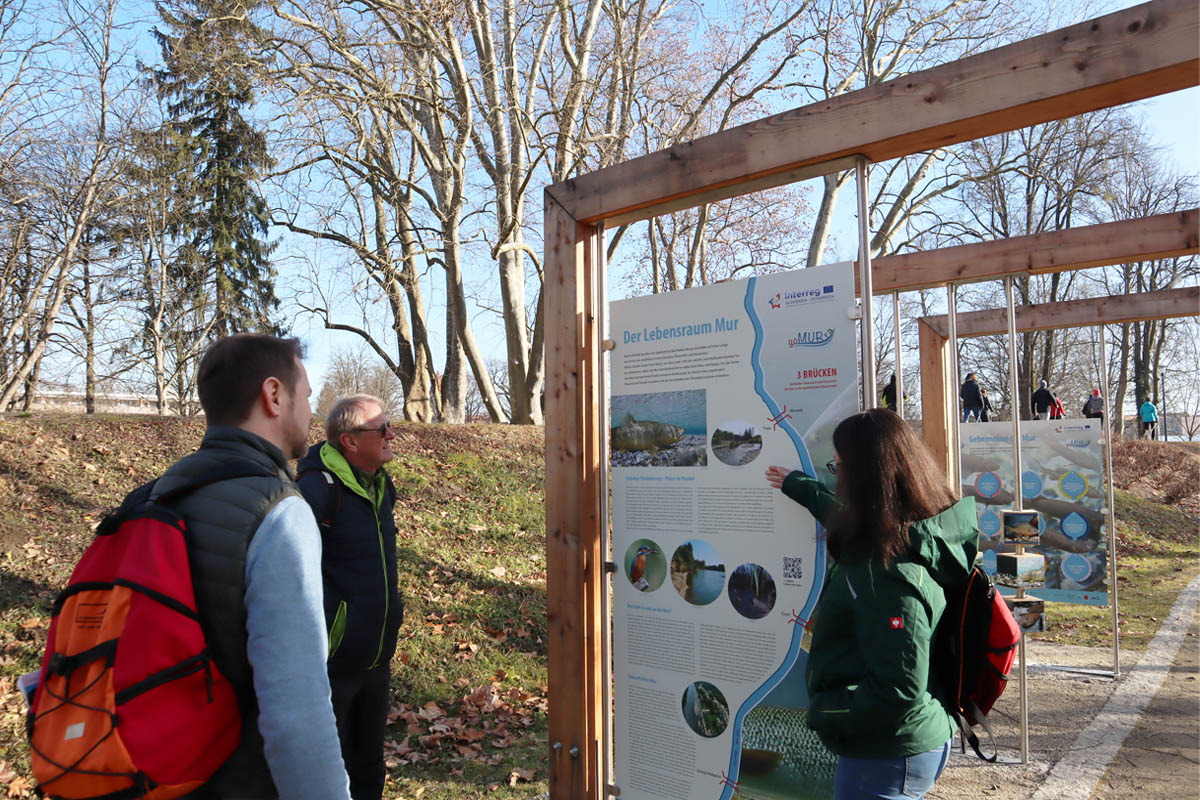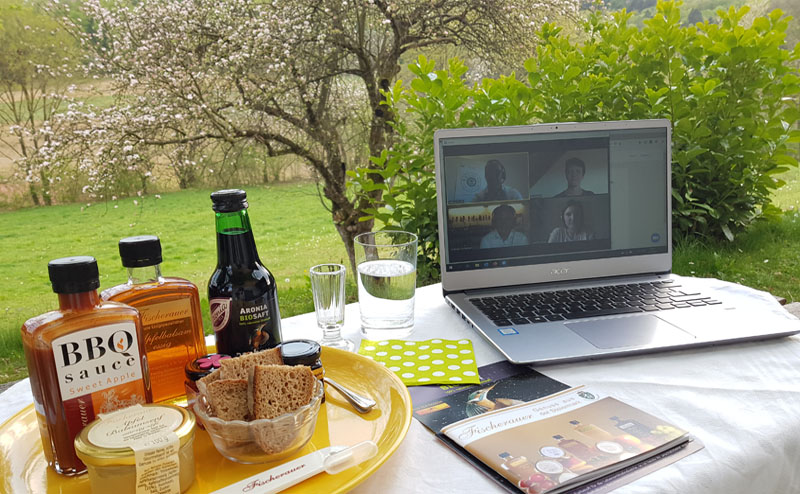Tourism Experts from Kamnik municipality, north of Ljubljana, visited the Styrian Vulkanland at the beginning of April. Building a culture of cooperation, valorising the existing and changing the whole region was at the top of the requirements profile for the customized learning journey.
Accompanied from the gateway to Vulkanland, St. Veit am Vogau, we introduced as an ambassador of the region on the way to Feldbach in the history of the region and the recent developments as Vulkanland. The working and cooperation groups such as Vulkanland wheat, life gardens and the Vulkanland museums as well as the way to the practiced festival culture impressed the tourism experts. The fact that the persistent way pays off is evident in these examples and the encounter with the people behind them. The change in the way in which crops are cultivated using Vulkanland wheat and the resulting changes in the landscape have convinced tourism professionals of the importance of these measures, which have a long-term impact on tourism. The valorisation of the silent Advent, started by Straden with the green light and accompanying measures flow into solution-oriented discussions to own possibilities.
The program included a guided tour at Lava Bräu – especially interesting for two microbrewery operators from Kamnik – as well as a meeting with Mr. Graf Bardeau at the exhibition “The Small World of Great Castles”, about the Castle Road and the current Interreg project with Slovenian castles reported.
Josef Kaufmann, Market Manager of Lagerhaus Feldbach, introduced the concept of “Genuss shops”. Farmers sell their products together through an association. Presented figures speak for the positive development since the introduction in 2002, about eighty suppliers are now cooperating with each other. Michael Fend, Managing Director of the Leader-Management Vulkanland, summarized the impressions of the day in an overall presentation and talked about the vision process and the change from the border region to a sustainable living space. We raise our glasses with Caldera in a toast to the excursion. Bernhard Haas at Obsthof Haas studies Slovenian. A nice end-to-end gesture in an effort to “talk” across the border. Not only the stories about Caldera, Wudhupf and Co but also some anecdotes from the family life at the fruit farm brought the guests from Slovenia to smile and wonder.
Not only the stories about Caldera, Wudhupf and Co but also some anecdotes from the family life at the fruit farm brought the guests from Slovenia to smile and wonder.
The tour guide was in English and German with temporary translation by the organizer, Mrs. Helena Treska, in Slovenian. Older participants spoke consistently well German, the younger visitors rather English in addition to the native language.





